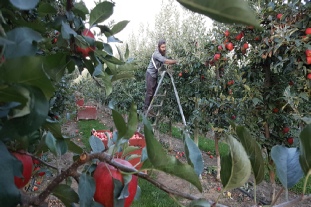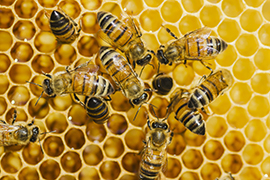CALGARY, AB – Two-thirds of Canadians consider farmers as trusted sources about the state of Canada’s food system says a new report by the Canadian Centre for Food Integrity (CCFI), but farmers need to be more accessible if they want their stories to get through.
The average farmer has a circle of friends and a circle of influence, whether they talk to them via social media or at the coffee shop, but CCFI president Crystal Mackay says farmers need to find new ways to share their information – and more of it.
“The first step is to be part of the conversation. Share information. If you’re a grain farmer, don’t just take a picture of your harvest,” she says. “Say, ‘Look at the Doritos I am producing’ or ‘Check out the crackers I am making.’ Talk about the pasta. Turn your acres into plates!”
The next step is reaching new audiences, something that’s difficult because farmers are the low-key stars of the food sector.
“The chance of these folks being profiled in the top Google search on animal welfare is very slim so this is something our sector needs to invest in,” Mackay says. “We need to create platforms for credible sources – farmers, researchers at universities or environmental engineers – to share and reach the volume of Canadians that they need to.”
Mackay says many farm associations are having success putting a face to farming. The fact that major retailers are using a cranberry producer or a rancher in their campaigns reflects this.
“But despite all our efforts, if you divide them up by commodity, by province, by company, they’re too small. We’re not shaping a grand narrative. We’re telling many, many small stories,” Mackay explains. “If we are going to reach 16 million Canadians who are unsure, one person at a time is great and I believe that is where this needs to start, but we need to turn it up to the millions.”
Mackay likens the food system to hockey. There’s the peewee league, the regional and provincial leagues, but there’s no NHL of agriculture – at least not one that’s industry-driven.
CCFI aims to encourage collaboration across the entire Canadian food system to do long-term planning, talk about issues and messages and get everyone around a table talking – the farmer, the retailer, the grocer, food processor, equipment dealer, the food service person, the seed processor and so on.
Co-ordinating the conversation is part of what it sees as its role.
“We all need public trust in the food system, so what can we do bigger and better together?” Mackay asks. “It’s a big challenge, not for the faint of heart or inexpensive. This is a 25-year plan, not a one-time ad campaign.”
Right now, CCFI claims 31 members and an annual budget of $1.5 million, to which government partners have contributed $100,000.
Groups like the BC Agriculture Council are on board. BCAC representatives attended a summit in Calgary on September 19 to hear and discuss the results of CCFI’s latest survey. BCAC has also welcomed Sharon Eistetter in September on a one-year contract to manage public trust initiatives. She’s focusing on creating a short-term and a longer-term plan to help get the 28 commodity groups BCAC represents to better share and communicate with the public.
“My role is to bring a group of industry leaders together to see how we can share best practices,” Eistetter explains from her home office. “Farmers are doing the right thing but we need to demystify information for consumers. It’s a massive undertaking. The end goal is to improve consumer confidence in the food system in BC, in the areas of environmental care, animal care, farm worker care, food safety and quality.”
A national public trust steering committee headed by Myrna Grahn is working to bring together industry stakeholders like grocery stores, restaurants and farmers. Grahn is working with the value-chain round tables, groups that are amplifiers of agriculture and food promotion, CCFI and representatives of the provincial farm organizations.
“We want producers across the country to have more consistent messages to share with the public and we want to avoid siloed work,” Grahn explains from Winnipeg. “We know that actions must be taken to build and regain public trust and we know that we need to do this in a more collaborative way.”
Glen Lucas, general manager of the 520-member BC Fruit Growers Association, says the issue of public trust is on the radar.
“There’s a lot of work to do, but we are seeing more interest in public trust,” he says.
But if CCFI and others create the forums, it’s up to all those involved in the food system to lead.
“When we look at who the public holds accountable for food safety, it is the whole food supply chain. And to be meaningful on public trust, it includes doing the right thing and telling people about it. It’s not just an ad campaign,” Mackey says. “If it is viewed as a government program by the industry and they don’t own it, it won’t be successful.”


 Research breeds better bees for Vancouver Island
Research breeds better bees for Vancouver Island